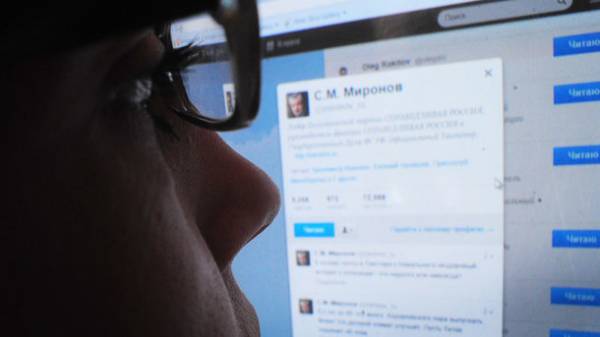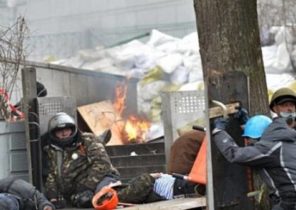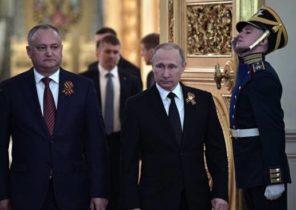
In Ukraine appeared the information security doctrine, which reflects not only actual threats natsinteresam in the field of information, but also instructions to ministries and agencies to monitor the Internet and media. While Ukrainians in the network compare the doctrine with the same document in Russia, “Today” has learned, will it be possible in Ukraine to sit down for a post on the network.
TIME AND PURPOSE. The national security Council doctrine approved in December of last year, but was signed by its President only last Saturday. According to media expert Tatiana Popova, a similar document was supposed to appear in 2014, when he started work. Deputy Minister of information policy Dmitry Zolotuhin in conversation with “Today” agreed that the doctrine should have been taken long ago: “talked a lot About this MPs, including within the framework of the coalition agreement, homeland security and defense. Not the last role in delay was played erupted in the country a year ago the political crisis that prevented the adoption of the doctrine in different departments”. As noted Poroshenko, the need for such a document demonstrated in Russia using the technology of hybrid war and turning the information sphere into an arena of confrontation.
In the document we are talking about granting by the Cabinet of Ministers, SBU and the Ministry of information policy mechanisms for the detection and blocking of online information that threatens the Ukrainians. For such data, the authors ranked the propaganda of war, incitement to national and religious hatred, incitement to change the constitutional order. Also prohibited by the doctrine of propaganda of the Communist, Nazi and totalitarian symbols.
Monitor for violations, officials will not only blogs, social media posts and other online activities of the Ukrainians, but also the media. In addition, the authorities want to launch a continuous monitoring of propaganda by the aggressor state to quickly respond to it. As noted in the doctrine itself, now the Cabinet should calculate how much financing programs and coordinate the work of ministries and departments. To help the government in this will be the national security Council. Specific penalties for violations of the rules of the doctrine has not yet been developed, it promised to do in the near future.
TO SIT AT POST. The document was not to taste many experts and human rights activists. “Freedom of speech? Never heard of it. To counteract the propaganda is only one way — creating high-quality and objective content. But if this is difficult, much easier to go through prohibitions, although not the way that you need a developing country”, — said the representative of human rights organization Amnesty International in Ukraine Tatyana Mazur.
In turn, the political scientist Ruslan Bortnik said that in the doctrine there is nothing illegal or unconstitutional, and fundamentally it won’t change. “It’s one thing to claim any sort of machinery, and another to have the technical or financial possibilities for them. But there is one big danger — analysis and combing the Internet for objectionable information needed to issue more specifically. Now there is a danger that under this category of data may be subject to any objectionable information. In such cases, it may start a “witch hunt” when Ukrainians will be held accountable for any records on the Internet” — sums up the expert.
In turn, the Ministry of information policy, emphasize that the position restricting civil rights, in the document no. “But such statements are the fuse. That is, the civil society should have its own “club” which warned: we will not allow government policy used to reduce any civil rights. People should monitor, as applicable document and not to remain silent in case of violations,” — said Zolotukhin us.







